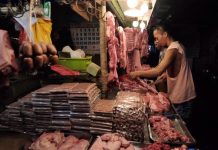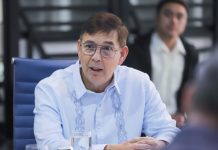President Rodrigo Roa Duterte’s economic managers are set to present to foreign businessmen the Philippines’ economic and social development blueprint in a forum dubbed as “Dutertenomics”, during a visit to Cambodia and China from May 10-15.
In Cambodia, Pres. Duterte will participate at the World Economic Forum (WEF) for ASEAN on May 10-11 and the “One Belt, One Road” Forum for International Cooperation in Beijing on May 14-15 aimed at further boosting the country’s economic ties with China and the rest of the world.
Launched prior to the ASEAN 30th Leaders Summit in Manila late last month, Dutertenomics also aims to accelerate poverty reduction and transform the Philippines into a high- to middle-income country by 2022.
The economic policies of the Duterte administration have a 10-point socioeconomic agenda which are primarily aimed at reducing poverty from 21.6 percent in 2015 to 13 to 15 percent by 2022.
The Philippines stands to hugely gain from joining the Belt and Road Initiative as it is in consonance with the Duterte administration’s massive trillion-peso infrastructure program called “Build, Build, Build” that would usher in the country’s “golden age of infrastructure” in the next five years.
Big-ticket infrastructure projects such as roads, bridges, mass urban and subway systems are among the key priorities under the administration’s development agenda. Some of the identified projects will be funded by China.
During his state visit to China last October 2016, Pres. Duterte and Chinese Pres. Xi Jinping agreed to engage in more cooperation such as the country’s participation in Xi’s flagship “One Belt, One Road” initiative.
The initiative will launch a series of infrastructure projects across three continents, linking Asian markets with economic circles in Europe and Africa.
CIPG-PCOO MOU ON MEDIA EXCHANGE
At the sidelines of the Dutertenomics Forum on May 15, the Presidential Communications Operations Office (PCOO) and the China International Publishing Group (CIPG) will sign a memorandum of agreement on media exchange and cooperation.
The move is seen as a big boost to the operations and capability-building of state-owned media outfits under PCOO such as the Philippine News Agency, People’s Television, Philippine Information Agency and Radyo Pilipinas. (PNA)






